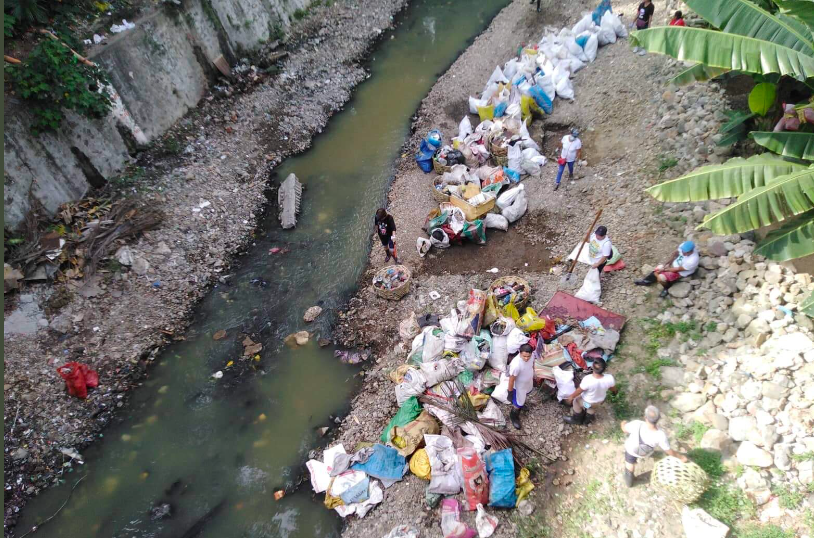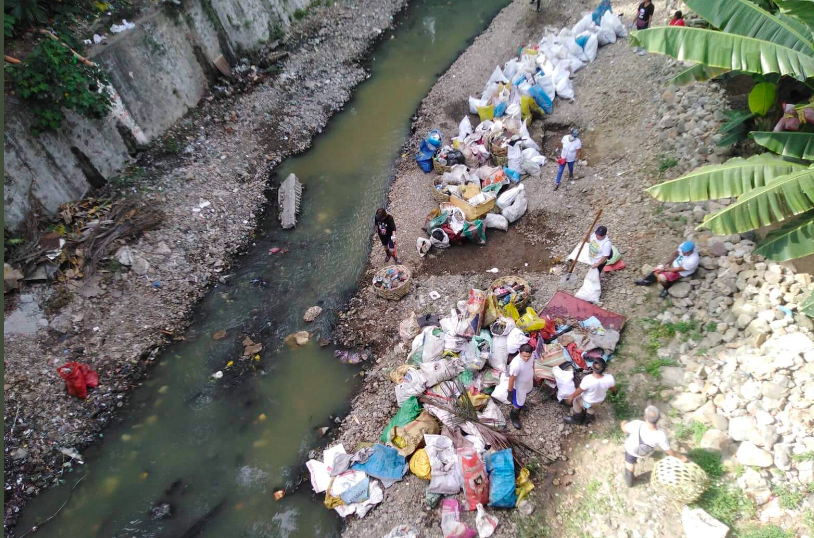
Garbage including single use plastics clog the waterways and ultimately cause floods. Above is one of the river cleanups in one of the waterways of Cebu City. | CDN Digital file photo
CEBU CITY, Philippines — A civic group in Cebu City is calling for an immediate ban on single-use plastic and styrofoams in the city amid the recent flash floods.
The group is composed of environmental protection organizations such as Break Free From Plastic PH Project, Philippine Earth Justice Center Inc., Philippine Movement for Climate Justice, Ecosystems Initiative, EcoWaste Coalition, among others.
The group is urging the Cebu City government to not only put up water bottle receptacles around the city and public places but to entirely ban the use of these bottles and styrofoams to reduce the plastic waste causing the flooding.
This after 60 percent of the total 230 tons of garbage collected by the city during the major flash flood on October 13, 2020, turned out to be plastic products clogging the rivers and waterways.
Read: DPS collects 140 tons of garbage since Oct. 13 flood
For the group, receptacles are not enough to handle the sheer volume of plastics used daily in the city.
“The move to put up trash bins in key areas to facilitate collection and transportation of plastic bottles to materials recovery facilities (MRFs) – which we do not know for sure really exist, or if they are truly capable of absorbing the sheer volume of plastic bottles disposed of daily — fail to address the plastic problem squarely.”
“It is clear that this measure will not guarantee the reduction of plastic wastes, but only incentivizes bottled water companies to produce more plastic bottles, leaving the city the duty of acquiring these plastic wastes and paying for their disposal instead of the manufacturers of these wastes themselves owning up to their responsibility,” said the group.
Read: Labella to bottled water manufacturers: Put up recycling bins in the city
Instead, the group is calling for an immediate ban on single-use plastic and styrofoams in the city to reduce the actual plastic waste generated by households and establishments.
They also recommend that the segregation of recyclable and non-recyclable garbage must be ensured from the source in the homes and establishments up to the MRFs in the designated landfills.
“Using DENR’s 2019 waste composition data, we can conclude that segregation coupled with waste minimization measures such as composting, recycling, and reuse, can potentially reduce the volume of waste for disposal to only 20 percent (biodegradables at 52.31 percent plus recyclables at 27.78 peercent equals 80.09 percent).”
“Therefore, the volume disposed from the average of 600 metric tons per day of solid waste generated by the City may be reduced to 120 tons if measures are undertaken consistent with RA 9003,” the group said.
Lastly, the civic group urged the city government to scrap its plans for a waste-to-energy incineration project with a private developer because this would only cause additional environmental repercussions for the city.
“Finally, incineration does not discriminate against the nature of the waste material, whether biodegradable or non-biodegradable. Incineration of nonbiodegradable materials (e.g. plastics) generates harmful by-products which can cause long-term and irreversible damage to human health and the environment,” said the group.
The civic group will be submitting their position paper as their response for the two proposed ordinance banning the usage of single-use plastic in the city.
The group hopes that the City Council will consider their position in making the next move for the city’s environment. /dbs


